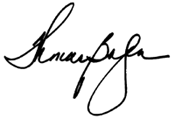2002 Distinguished Graduate Award
GEN George A. Joulwan '61
A distinguished soldier whose extraordinary achievements as Supreme Allied Commander, Europe, were instrumental in building a new post-Cold War security structure, a Commander-in-Chief of Southern Command who made a significant contribution to bringing peace to El Salvador and democracy to Panama, and a Commander-in-Chief, Europe, who conducted over twenty successful operations in the Balkans, Africa, and the Middle East without the loss of a single soldier to hostile fire, George Alfred Joulwan has served his country with distinction in a military career of over thirty-six years. In every assignment, from platoon leader to four-star general, George Joulwan has lived by the motto of the United States Military Academy: Duty, Honor, Country.
George Joulwan played football and basketball as a cadet, winning two letters in football as a lineman. Commissioned in the Infantry, he first served with the First Battalion, 30th Infantry of the 3rd Division in Europe. Posted to Vietnam, he was assigned to the First Battalion, 26th Infantry of the First Division. As Battalion Operations Officer (S-3), his commanding officer was General (then Lieutenant Colonel) Alexander Haig, who has termed him a “consummate warrior.” For his service in Vietnam, George Joulwan was awarded two Silver Stars, the Bronze Star with “V” device, four Air Medals, and the Army Commendation Medal.
Returning to the United States, Major Joulwan was assigned to Loyola University, Chicago, as Assistant Professor of Military Sciences, where he earned his Master of Arts degree in Political Science. After graduating from the Army Command and General Staff College in 1971, George Joulwan returned to Vietnam and served with the 101st Airborne Division. In 1972, he reported to West Point for a one-year tour with the Department of Tactics, and in 1973 he was appointed Aide-de-Camp to the Vice Chief of Staff, U.S. Army. A year later, Lieutenant Colonel Joulwan was named Special Assistant to the President of the United States. In 1975, he became Special Assistant to the Supreme Allied Commander, Europe, and later commanded the First Battalion of the 26th Infantry. He attended the Army War College, and served on the Staff and Faculty until 1979, when he returned to Germany to command the 2nd Brigade of the 3rd Infantry Division. He later served as Division Chief of Staff before returning to the Office of the Joint Chief of Staffs in 1982. General Joulwan was Director of Force Development, Department of the Army, until 1985 when he was appointed Deputy Chief of Staff for Operations, U.S. Army Europe and Seventh Army.
Major General Joulwan commanded the 3rd Armored Division in 1988, and became Commanding General of the V Corps in 1989.
In 1990, General Joulwan was appointed Commander-in-Chief, United States Southern Command. During his first ten days in command, he faced three coups, an insurrection in Panama, and a war in El Salvador. Through George Joulwan’s strong and decisive leadership and steadfast moral courage, he was able to bring peace to El Salvador and democracy to Panama. In addition, General Joulwan was successful in modernizing the military organizations of Latin America while increasing their professionalism. In a parallel effort, he made significant strides in reducing the trafficking in illegal drugs throughout the region.
George Joulwan’s final active duty assignment, from 1993 until he retired from the Army in 1997, was Commander-in-Chief, United States European Command and Supreme Allied Commander, Europe. Altogether, General Joulwan served eighteen years in Europe and was the first Supreme Allied Commander, Europe, to have commanded at every level from platoon through corps.
As SACEUR, General Joulwan established first-ever strategic policy for United States military engagement in Africa and orchestrated the State Partnership Program that linked American reserve forces from 23 states with former non-NATO countries and newly independent democracies of Eastern Europe and the Soviet Union. George Joulwan developed the concept of the Bosnia operation, and for eighteen months was the overall military commander of the Implementation and Stabilization Force involving thirty-six nations. He was instrumental in developing the Partnership for Peace Program, and due to his efforts and initiative, Russian and United States military forces conducted operations together in Bosnia. This cooperation, spearheaded by General Joulwan, was the basis for the historic NATO-Russian Founding Act signed in 1997 that ended the Cold War.
In addition to his many combat decorations, General Joulwan has been awarded three Defense Distinguished Service Medals, the Army Distinguished Service Medal, and the Legion of Merit twice.
Subsequent to his retirement, George Joulwan has continued to serve his country — as an advisor to private industry, a consultant in both the public sector and on senior defense boards, and as a teacher and educator. Most notably, he was the Olin Professor for National Security at the United States Military Academy.
Throughout four decades of dedicated service to his country, George Joulwan made permanent and invaluable contributions to the freedom and security of the United States. His sound military advice on the use of military power to support diplomacy and foreign policy were instrumental in ending the Cold War and bringing peace to the Balkans.
Accordingly, the Association of Graduates takes great pride in presenting the 2002 Distinguished Graduate Award to George Alfred Joulwan, USMA Class of 1961.

THOMAS B. DYER
Chairman and CEO